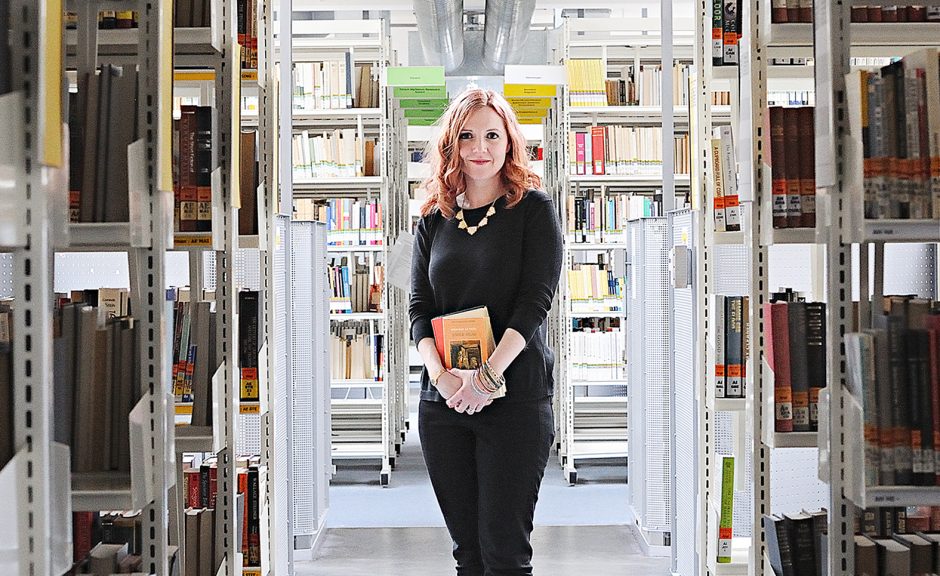“Science fiction writers imagine similar things to scientists”

The relationship between science and science fiction has changed significantly in recent years. And they influence each other, as Dr. Zoë Lehmann Imfeld, a literary expert on science fiction from the University of Zurich, told PlanetS in an interview.

Astronomers discover new planets far out in space. And they are delivering fascinating research results on these alien worlds. Meanwhile, space probes and rovers analyze Mars around the clock. Futuristic instruments generate oxygen from the hostile environment on the red planet. Meanwhile, a small helicopter undertakes exploratory flights in the thin atmosphere of the neighboring planet.
What sounds like science fiction is actually reality. And yet it seems that this is nothing new. “Science fiction writers imagine similar things to scientists,” says Dr. Zoë Lehmann Imfeld, Senior Lecturer at the English Department of the University of Zurich. She has been studying science fiction intensively for five years now.
“What science fiction writers can do is turn their imaginations into fiction, and scientists can turn it into reality.” So it’s not surprising, she says, that the two results would end up looking similar. “It’s the same imagination. It’s just a different way of making that imagination a reality.”
Science fiction does quite important work
Science fiction has gained credibility in recent years. “Science fiction often gets a double blow of that it’s not considered as serious science – wrongly – and wrongly not considered serious literature,” says Lehmann Imfeld. But in the last ten or fifteen years that has been changing quite a lot. “The literature field has started to realize that science fiction actually is doing some quite important work, especially with the natural sciences and the way that it engages with the natural sciences.”
So it seems not surprising that younger generations of scientists are increasingly daring to publicly admit their fascination with science fiction. The Italian astronaut Samantha Cristoforetti even had herself photographed wearing her Star Trek uniform in the International Space Station ISS in 2015.
„It doesn’t undermine the professionalism as scientists“
This might have something to do with the fact that in the literature field there are generations of researchers now that say, science fiction is legitimate stuff that we can work with. “And that filters through to the scientists,” Zoë Lehmann Imfeld says.
What’s interesting here is that earlier generations of researchers – in literature as well as in the natural sciences – say that they are just as fascinated by science fiction as younger generations. “It’s if they’ve been given permission to say that. And – important – it doesn’t undermine their professionalism as scientists to say they are inspired by science fiction. I think this is part of this process of science fiction being taken more seriously – and taking itself more seriously”, she says.
Science in science fiction needs to be plausible
According to Zoë Lehmann Imfeld, one important point contributes to this: “Science fiction expert Darko Suvin said that the science in science fiction needs to be logically and cognitively plausible. I think that’s crucial. It doesn’t mean it has to work. It has to treat science seriously. Or it’s not science fiction anymore. Then it’s fantasy.”
In this context, the question arises as to how far science fiction influences. Lehmann Imfeld on this: “I think we greatly underestimate the influence of science fiction on science. It makes concerns for instance climate change very real, very immediate, and possible to imagine for people. By fictionalizing it makes it more real. So, it is a bolster. It provides a motivation in the real world: Look, we can change things. So natural sciences and technological sciences particularly offer a solution.”
Watch the interview with Dr. Zoë Lehmann Imfeld, Senior Lecturer at the English Department of the University of Zurich.
Categories: External Newsletter, News

